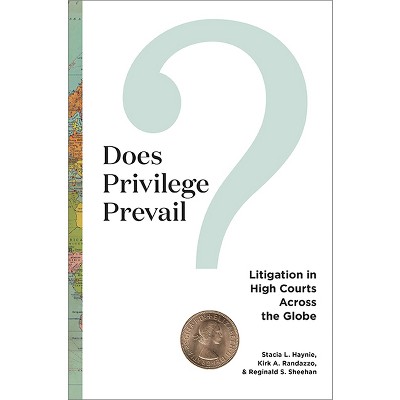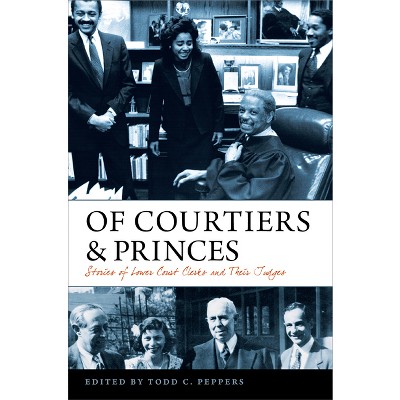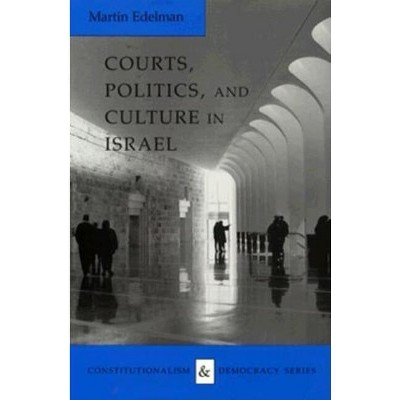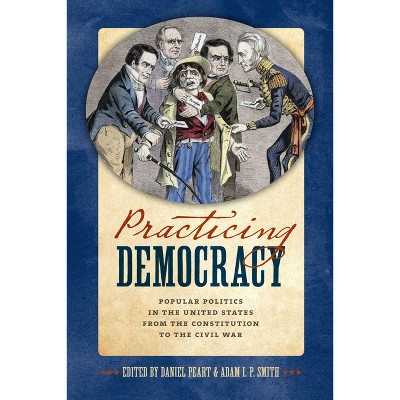When Dissents Matter - (Constitutionalism and Democracy) by Pamela C Corley & Amy Steigerwalt & Artemus Ward

About this item
Highlights
- The ability of US Supreme Court justices to dissent from the majority, to formally register and explain their belief that a case has been wrongly decided, represents a time-honored tradition of perhaps the most august American institution.
- About the Author: Pamela C. Corley is Associate Professor of Political Science at Southern Methodist University.
- 180 Pages
- Political Science, History & Theory
- Series Name: Constitutionalism and Democracy
Description
About the Book
"Analyzing the influence of previous US Supreme Court dissents on future majority opinions, this book presents the first comprehensive study of the effects of dissenting opinions and illuminates which types of dissents successfully influence legal and policy debates, which ones fail to make a difference, and why. Drawing on the private papers of the justices and original data, including textual analysis of opinions, this book demonstrates that court majorities engage with dissents that pose a particular threat to the strength and position of the majority opinion-specifically, well-crafted and attention-grabbing dissents from larger, ideologically mixed coalitions. These results suggest that majorities can be persuaded by thoughtful and careful dissenting arguments but must defend against strident appeals to external actors, including the other branches of government, the media, and the public"--Book Synopsis
The ability of US Supreme Court justices to dissent from the majority, to formally register and explain their belief that a case has been wrongly decided, represents a time-honored tradition of perhaps the most august American institution. Yet the impact of these dissents, which allow justices to engage in a dialogue over law and policy, has seldom, if ever, been the focus of dedicated study. Analyzing the influence of past dissents on later Supreme Court majority opinions, this book presents the first comprehensive study of the effects of dissenting opinions and illuminates which types of dissents successfully influence legal and policy debates, which ones fail to make a difference, and why.
Drawing on the private papers of the justices and original data, this book demonstrates that court majorities engage with dissents posing a particular threat to their opinions, and that they can be persuaded by thoughtful and careful dissenting arguments.
Review Quotes
More so today than ever before, U.S. Supreme Court justices sit at the center of our nation's debates over law and policy. In their impressive and accessible new book Corley, Steigerwalt, and Ward demonstrate when, why, and how justices themselves engage in these debates through their dissenting opinions. Judicial Dialogue: The Politics of U.S. Supreme Court Dissents provides the most comprehensive scholarly examination of Supreme Court dissensus to date and will be of great interest to Court watchers of all types.
--Christina Boyd, University of Georgia, co-author of The Politics of Federal ProsecutionThis is the first effort to systematically investigate the question of the impact of dissent and to integrate disparate literatures on dissenting opinion writing in order to do so. The authors use an original methodology to interrogate dissent, and its impact on the collegial process of law production, to make a substantial contribution to the understanding of the field of law and judicial process.
--Nancy Maveety, Tulane University, author of Queen's Court: Judicial Power in the Rehnquist EraAbout the Author
Pamela C. Corley is Associate Professor of Political Science at Southern Methodist University. Amy Steigerwalt is Professor of Political Science at Georgia State University. Artemus Ward is Professor of Political Science at Northern Illinois University. Together they are coauthors of The Puzzle of Unanimity: Consensus on the United States Supreme Court.
Shipping details
Return details
Trending Non-Fiction











